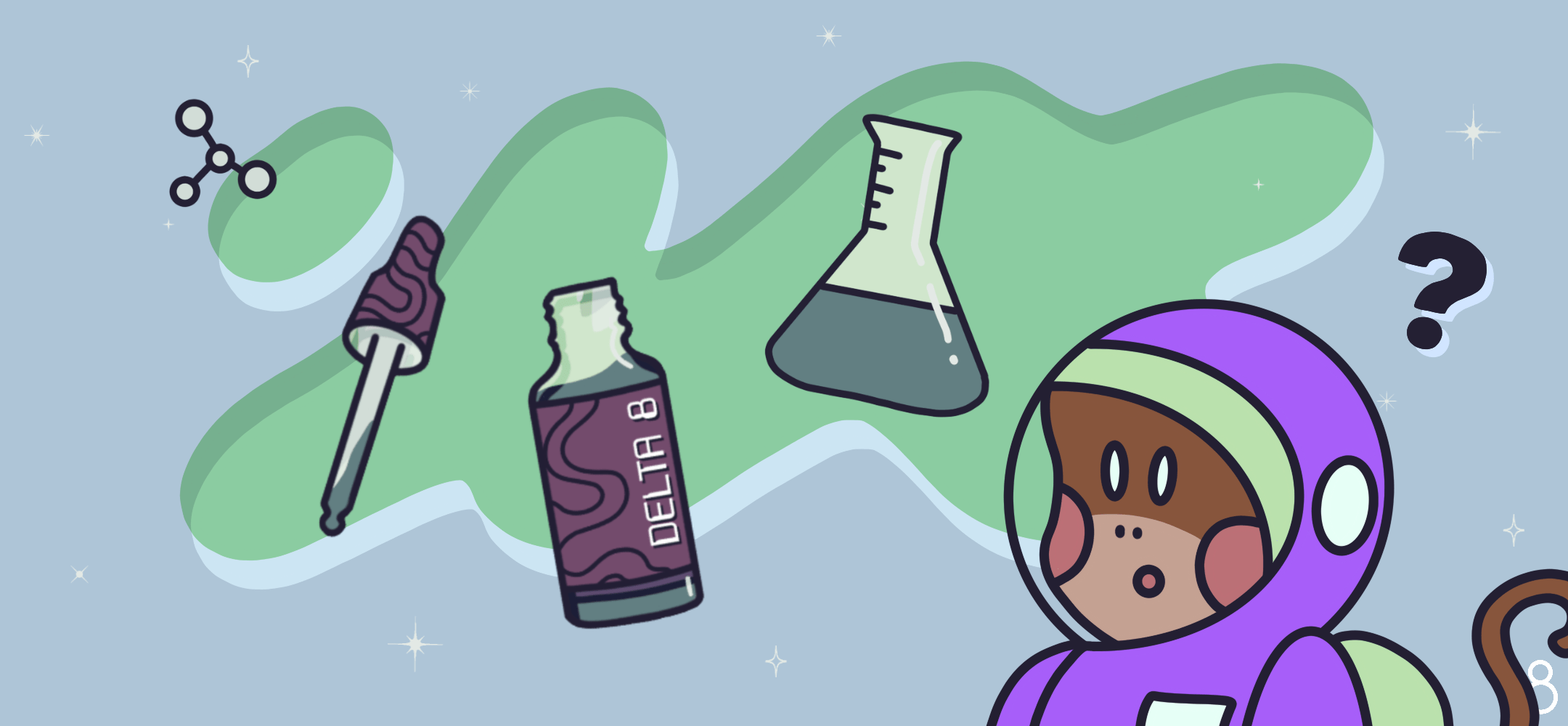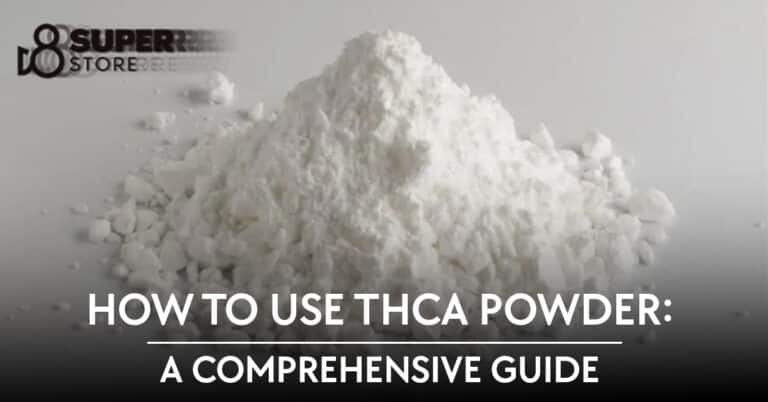THCa vs Delta 8 THC: Understanding the Differences
Step into the magical realm of weed, and you’ll uncover hidden gems like THCa and **[Delta-8 THC](https://d8superstore.com/what-is-delta-8-thc)**, each packed with its unique magic. Imagine THCa as the hidden powerhouse, strong yet flying under the radar. It’s the secret ingredient in raw cannabis that won’t tweak your brain unless it heats up, morphing into the well-known Delta-9 THC – the kind that rockets you sky-high. So, when you gaze at that untouched joint, remember: THCa is just chilling, waiting to transform. Cool, right? Don’t go anywhere because I’m about to spill the beans on tips and secrets that’ll turn you into the go-to guru in your crew!
Table of contents
Delta-8 THC, on the other hand, is an analog of Delta-9 THC and has been gaining popularity due to its milder psychoactive potential and legal status in certain areas. Although less potent than Delta-9 THC, Delta-8 THC can offer you some degree of euphoria along with potential therapeutic benefits. Consumers often describe the experience as more clear-headed and less anxious compared to the strong effects of Delta-9 THC.
Understanding the differences between THCa and Delta-8 THC is crucial for you to make informed choices about consumption and potential benefits. While they originate from the same plant, the effects on your body and the legal landscape governing their use can differ greatly.
Understanding Cannabinoids
In exploring the nuances of cannabinoids, your understanding of their interactions with the body and their biochemical properties is crucial. Here, you’ll grasp the specifics of how cannabinoids like THCa and delta 8 THC function and differ at the molecular level.
Cannabinoids and the Endocannabinoid System
Cannabinoids are a diverse group of compounds found in the cannabis plant that interact with your body’s endocannabinoid system. This system, consisting of CB1 and CB2 receptors, plays a pivotal role in regulating a variety of physiological processes. THC compounds, among other cannabinoids, bind to these receptors, affecting your mood, memory, appetite, and pain sensations.
The Chemical Structures of THC Compounds
The molecular structure of THC compounds is defined by their particular arrangement of carbon, hydrogen, and oxygen atoms. This structure determines how THC interacts with cannabinoid receptors in your body. Minor alterations in the arrangement can result in significantly different effects.
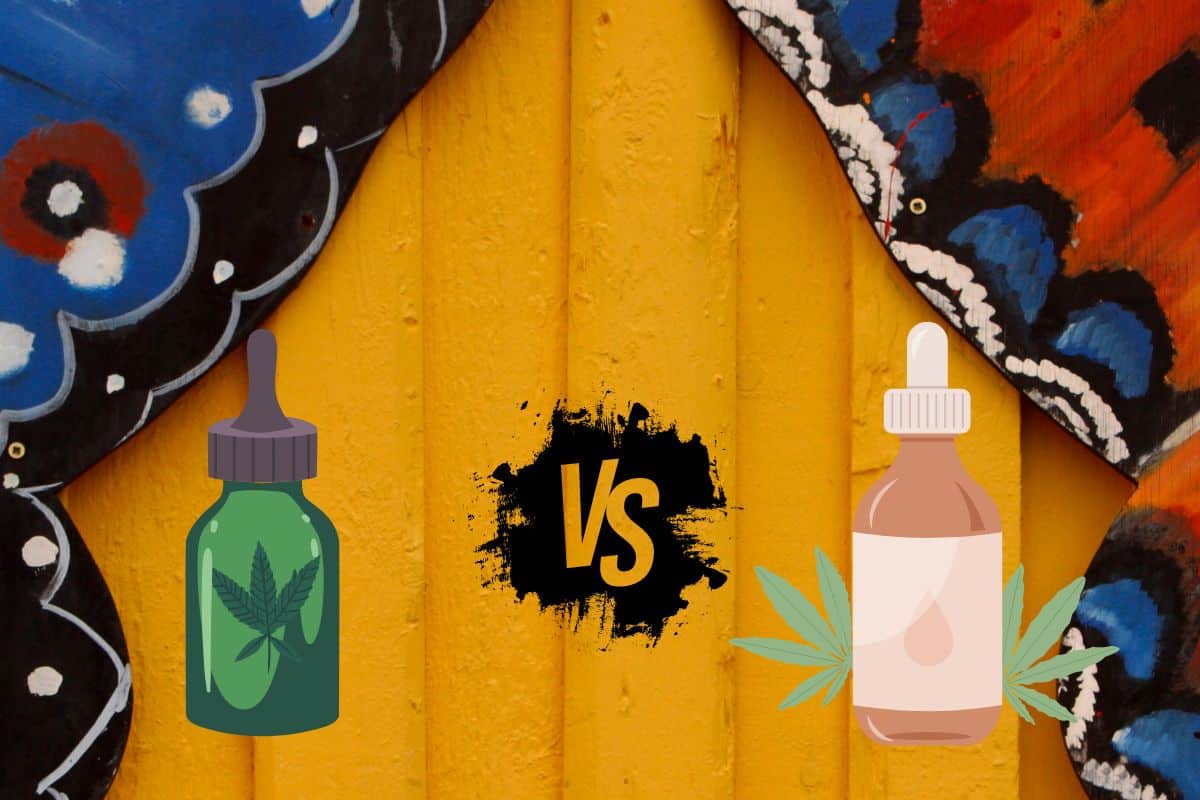
Delta 9 THC vs. Delta 8 THC
- Delta 9 THC: Predominantly found in cannabis, it’s known for its potent psychoactive effects.
- Delta 8 THC: A less abundant isomer of delta 9 THC, it’s chemically different by only a few atomic bonds but is often described as offering a milder high.
Both compounds interact with the endocannabinoid system but have differing affinities and effects on CB1 and CB2 receptors.
THCa: The Precursor to THC
THCa, or tetrahydrocannabinolic acid, is the non-psychoactive precursor found in raw cannabis plants. It contains a carboxyl group that, when exposed to heat through decarboxylation, is removed to yield the psychoactive THC compounds.
Chemistry of Cannabinoid Synthesis
Cannabinoids originate from an acidic form called CBGA, the “mother of all cannabinoids.” Specific synthase enzymes in the cannabis plant convert CBGA into various cannabinoids like THCa. When THCa is heated, it undergoes decarboxylation, losing a CO2 molecule to become THC. This transformation is a key aspect of the chemistry behind cannabinoid synthesis.
Effects of Cannabinoids
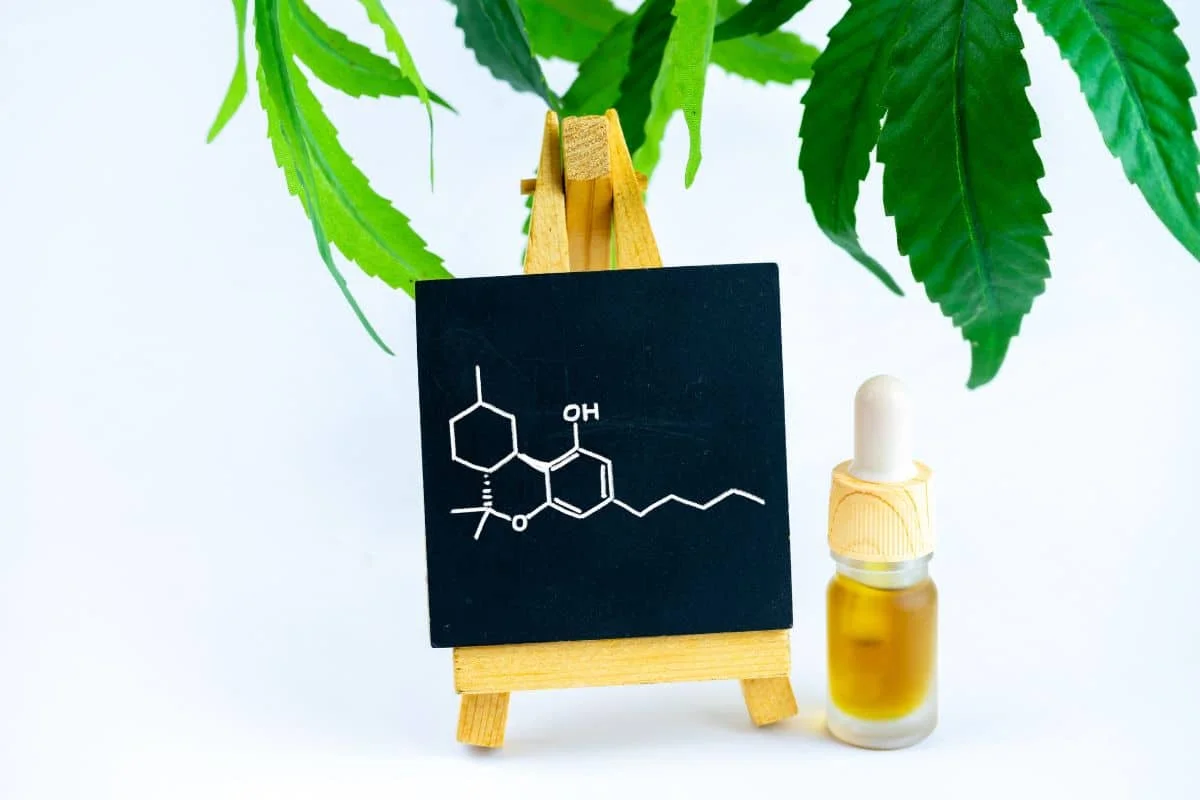
In this section, we’ll explore the distinct attributes of cannabinoids, particularly focusing on their psychoactive traits, therapeutic potentials, and the comparisons between Delta 8 and Delta 9 THC.
Psychoactive Properties
Cannabinoids are compounds found in the cannabis plant that interact with your body’s CB1 receptors. Delta-9 THC is the most widely recognized cannabinoid due to its potent psychoactive effects, which can lead to a sense of euphoria and relaxation. However, these effects can sometimes include unwanted side effects like paranoia, especially in higher doses. Delta-8 THC, on the other hand, is a different form of THC that is often described as less intoxicating, potentially allowing you to experience the benefits of euphoria and relaxation with a lower risk of paranoia.
Therapeutic Applications
The therapeutic benefits of cannabinoids are vast and varied. They can act as anti-inflammatory agents, provide pain relief, and have neuroprotective properties. These effects can be helpful in treating a variety of conditions and diseases. For example, Delta-9 may be useful in combating loss of appetite, while its anti-inflammatory action can alleviate symptoms of anxiety and inflammation.
Unique Effects of Delta 8 vs. Delta 9
Delta 8 THC and Delta 9 THC have overlapping yet unique profiles. While both can induce euphoria and promote relaxation, Delta 8 is typically milder, which may lead to it being a better candidate for those sensitive to the more intoxicating effects of Delta 9. Moreover, Delta 8 is cited for inducing a clearer high, which might translate to better functionality in day-to-day tasks for some users. It’s important to understand these differences to make informed decisions about usage, as individual reactions can vary widely.
Consumption Methods

When exploring the differences between THCa and Delta 8 THC, the method of consumption is a significant factor that affects your experience. Each method varies in onset time, duration of effects, and potency, influencing your preference for use.
Smoking and Vaping
Smoking is a traditional method, where you inhale the combusted cannabis flowers containing THCa, which gets converted to Delta 9 THC due to the heat. If you prefer a more modern approach, vaping employs devices like vapes or vape cartridges. These gadgets heat the cannabis product just enough to release its active compounds without combustion. Delta 8 THC, often found in vape cartridges, provides a milder high compared to Delta 9 THC.
Edibles and Tinctures
For a consumable that doesn’t involve inhalation, edibles such as gummies infused with Delta 8 THC might suit your taste. When eating cannabis products like Delta 8 gummies, anticipate a delayed onset because it needs to pass through your digestive system first. Alternatively, tinctures offer a sublingual option; just a few drops under your tongue can lead to a quicker absorption into your bloodstream.
Other Cannabis Products
Cannabis can be processed into various other products. Topicals involve creams or balms for external application and typically don’t produce psychoactive effects. Concentrates present a higher potency option and can be consumed via dabbing. Prerolls are convenient, pre-rolled cannabis flowers ideal for those who prefer smoking without the hassle of rolling.
Raw Cannabis and Juicing
In contrast to the aforementioned methods, consuming raw cannabis—including leaves and fresh buds—won’t deliver the same psychoactive effects since the THCa has not been decarboxylated (converted to THC). Juicing raw cannabis is another method to consume THCa, popular for its proposed health benefits without the high.
Safety and Legal Status

In navigating the complexities of cannabinoid usage, your awareness of potential side effects, legal boundaries set by regulations, and access to accurate consumer safety information is crucial. These aspects profoundly influence your experience with THC analogues like THCa and Delta-8 THC.
Potential Side Effects
While THCa is non-intoxicating in its raw form, Delta-8 THC can produce euphoric effects that are typically less intense than Delta-9 THC. However, you may still experience side effects such as:
- Mild Euphoria: feeling of happiness or excitement.
- Overwhelming Sensations: if taken in higher doses, can potentially overwhelm novice users.
It’s essential to use products responsibly and be aware that individual reactions can vary.
Regulations and the Farm Bill
The 2018 Farm Bill played a significant role in the legal landscape of cannabinoids:
- Hemp Derivation: Cannabinoids derived from hemp containing less than 0.3% Delta-9 THC are federally legal.
- State Laws: Legal status of Delta-8 THC varies by state, despite federal legality.
Always check your local laws before purchasing or using these compounds to ensure compliance.
Consumer Safety Information
When assessing the safety of cannabinoid products, consider the following:
- Manufacturing Processes: Solvents like ethanol used in the extraction process should be purged correctly to ensure product safety.
- Labeling Accuracy: Inconsistencies on product labels have been found. For instance, some tinctures may lack crucial safety data such as serving sizes.
By staying informed about your products’ origins and contents, you can mitigate potential risks and ensure a safer experience.
Product Variations and Preferences
When exploring the cannabis market, you’ll find a myriad of products ranging from flower to extracts, each with different levels of cannabinoids like THCa and delta-8 THC. Understanding their potency, terpene profiles, and extraction methods is key to finding the ideal product for your needs.
Potency and Efficacy
Potency refers to the concentration of cannabinoids in a product, while efficacy refers to its ability to produce the desired effects. For instance, delta-8 THC products are known for a milder psychoactive experience compared to delta-9 THC, promoting relaxation without intense euphoria. The potency can be measured using methods like HPLC-MS to ensure accurate labeling of cannabinoid content.
Understanding Terpene Profiles
Terpenes are aromatic compounds that influence the flavor and may also impact the effects of cannabis products. The terpene profile is a significant factor in product preference as it can alter the overall experience. Products with a diverse terpene profile often offer a more complex flavor and potentially enhanced therapeutic benefits, such as relaxation or stress relief.
Extraction and Processing Techniques
The extraction process plays a crucial role in defining the purity and quality of cannabinoids like THCa and delta-8 THC. Most extraction techniques involve solvents like ethanol or CO2, each with its own impacts on the final product. Hemp products, particularly those sold at dispensaries and in other marijuana markets, should undergo rigorous processing to remove any residual solvents and ensure safe consumption.
Choosing the Right Product for You
Selecting the right cannabis product is highly personal and depends on your desired effects, whether that’s seeking relief or simply to relax. Flower products might appeal to those who prefer traditional consumption methods, while others may opt for concentrates for their increased strength and potency. Non-psychoactive options like CBD are also available for those who want therapeutic benefits without the high.
The Future of Cannabis Compounds

The cannabis industry is evolving rapidly, with a strong focus on the discovery and utilization of various cannabinoids beyond the well-known THC and CBD.
Innovations in Cannabis Science
As you navigate the emerging landscape of cannabis, you’ll find that innovations in cannabis science are increasingly directed toward understanding and harnessing the therapeutic potentials of cannabinoids. Recent studies, for instance, have highlighted Delta-8 THC, a compound similarly structured to Delta-9 THC but with distinct properties, offering a milder psychoactive experience and potential medical benefits.
The cannabis sativa plant is a complex source of over a hundred cannabinoids, including CBD (Cannabidiol) and CBG (Cannabigerol), both of which have been recognized for their therapeutic applications without the psychoactive effects associated with THC. Innovative research is uncovering ways these compounds can be used in medical treatments, personal care products, and even in food industries.
Hemp, a variety of cannabis specifically bred for its low THC content, has become a legal crop in many countries, paving the way for a surge in CBD-based products. This normalization and legalization have opened the doors for extensive research and development in cannabis science. Researchers are performing content analysis on discussions involving cannabinoids like Delta-8 THC to understand public perception and information dissemination Content Analysis.
With the advancements in technology and a better understanding of plant genetics, the future you’re looking at may well include custom-bred cannabis strains tailored for specific cannabinoid profiles. This will allow for targeted therapies and products that cater to personalized health and wellness needs.
The interdisciplinary strategies being applied to expand upon the therapeutic avenues of cannabis highlight an exciting era of progress that goes beyond CBD and THC. By harnessing the potential of secondary compounds, researchers are not only broadening our understanding of cannabis’s capabilities but also how it might be integrated into various industry sectors Interdisciplinary Strategies.
The future of cannabis compounds is marked by rigorous science and innovative applications, ensuring that you can anticipate a more sophisticated understanding and use of cannabinoids in the years to come.
Conclusion
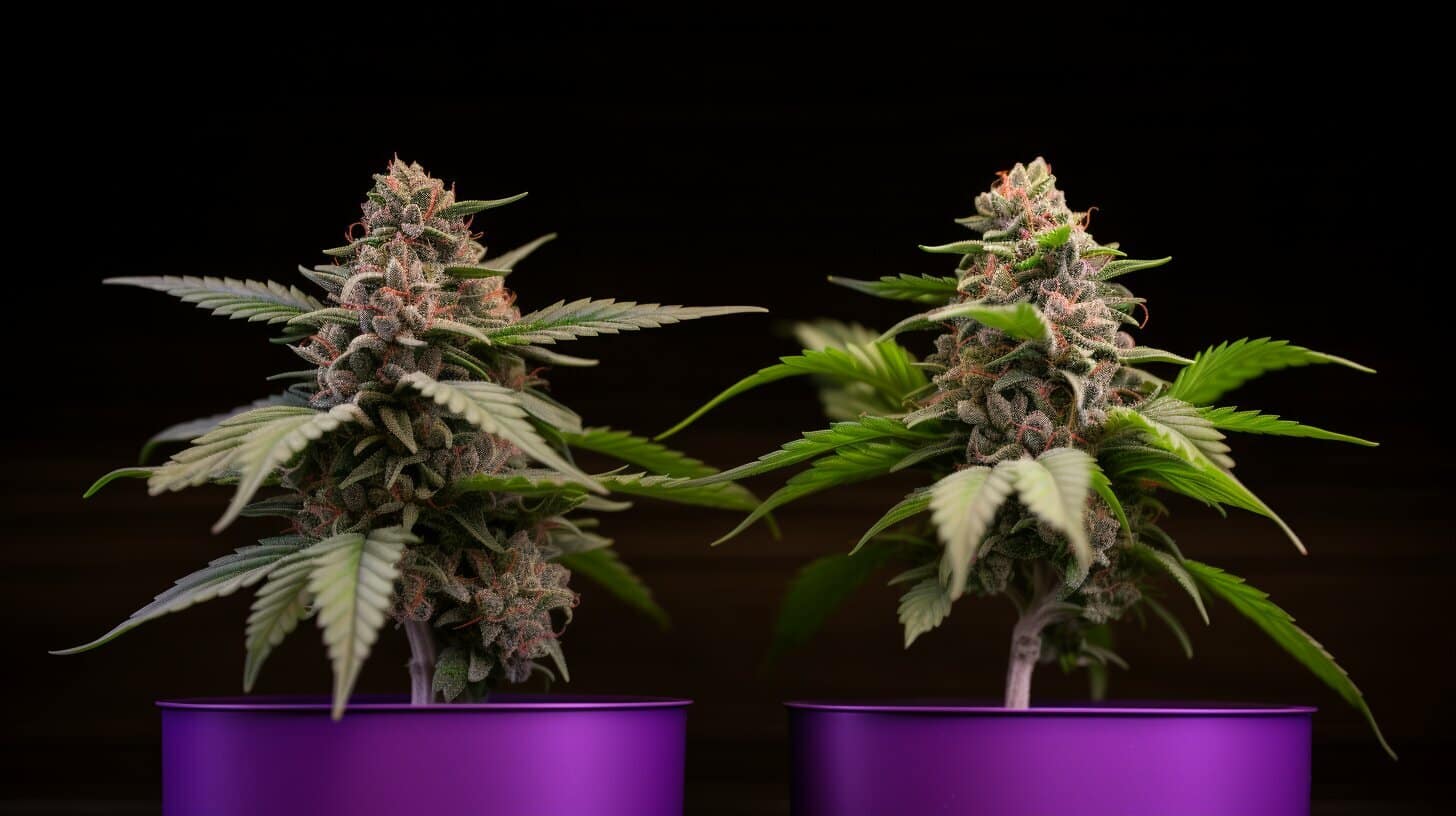
Delta-8 THC and THCa are two distinct compounds derived from the cannabis plant. Your understanding of their differences is crucial for informed usage and compliance with regulatory frameworks.
Delta-8 THC:
- Psychoactive properties: Elicits a milder high than Delta-9 THC.
- Legality: Varies by location, often existing in a legal gray area.
- Availability: Found in commercial products that may have inconsistent concentrations.
THCa:
- Psychoactive properties: Non-psychoactive in its raw form, becomes psychoactive when decarboxylated.
- Legality: Typically falls under the same legal restrictions as THC.
- Availability: Predominantly occurs in raw cannabis plant material.
Make sure you consult legal guidance in your area before purchasing or using Delta-8 THC products. Analysis has shown that commercially available Delta-8 THC products can sometimes contain concentrations different from what is advertised, raising concerns about quality control and labeling.
Conversely, THCa’s transformation into Delta-9 THC primarily happens through the process of decarboxylation, typically when cannabis is heated. This is a natural conversion that does not result in the formation of Delta-8 THC.
Whether you’re considering the therapeutic aspects or exploring the world of cannabinoids, staying well-informed and mindful of the nuances between these compounds will help you make decisions that align with both your health considerations and the law.
Frequently Asked Questions
Before diving into specific queries, understand that THCa and Delta 8 THC are unique compounds with different effects, legality, and availability.
What are the differences in effects between THCa and Delta 8 THC?
THCa, or tetrahydrocannabinolic acid, is a non-psychoactive precursor to Delta 9 THC found in raw cannabis plants. In contrast, Delta 8 THC provides a milder psychoactive experience compared to Delta 9 THC, offering potential anxiety reduction and a clearer high without strong sedative effects.
Can consuming THCa produce a psychoactive high compared to Delta 8 THC?
No, THCa alone does not induce a psychoactive high because it doesn’t readily bind to CB1 receptors in your brain. Heating THCa converts it to psychoactive Delta 9 THC. Delta 8 THC, although less potent, can produce a psychoactive high due to its affinity for the same receptors.
How does the potency of THCa compare to that of Delta 8 and Delta 9 THC?
THCa is considered non-psychoactive, whereas Delta 8 THC has a lower psychotropic potency compared to Delta 9 THC. Delta 8 is known to induce a more moderate high, with users reporting less anxiety and paranoia.
In what ways do edibles containing THCa differ from those with Delta 8 THC in terms of user experience?
Edibles with THCa typically won’t get you high because the THCa has to be decarboxylated into THC to become psychoactive. Delta 8 THC edibles, on the other hand, can provide a relaxed and mild high, accompanied by potential anti-nausea and analgesic properties.
What should users expect when choosing between THCa and Delta 8 THC flower products?
When choosing THCa flower products, expect no psychoactive effects unless heated, which converts THCa to THC. Delta 8 THC flower products will offer a smoother psychoactive experience, which might be preferable for those seeking less intense effects than traditional THC flowers.
Is THCa considered the active form of THC, and how does it relate to the properties of Delta 8 THC?
THCa is not the active form of THC; it’s a precursor that turns into Delta 9 THC when decarboxylated (heated). Delta 8 THC, however, is an active cannabinoid with a similar molecular structure to Delta 9 THC, but with distinct, less potent effects and an altered psychoactive profile.


